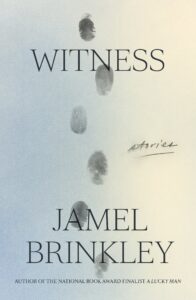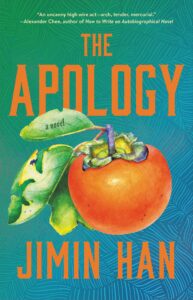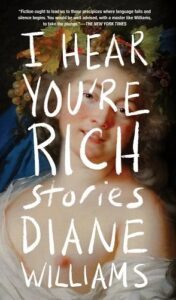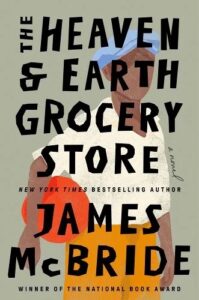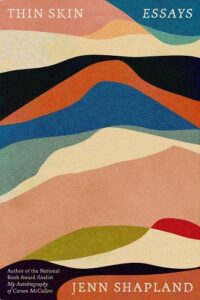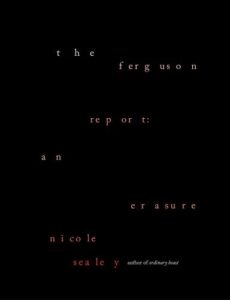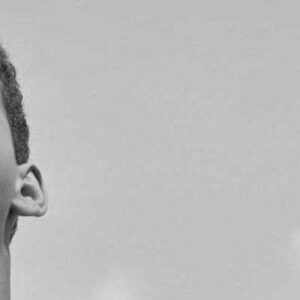AUGUST
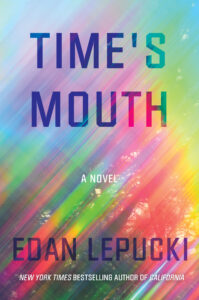
Edan Lepucki, Time’s Mouth
Counterpoint, August 1
As previously recommended: Another Northern California novel, different than the gray, tech-centric San Francisco works of today—this one covers a lot of ground, starting with the gritty hippie years, conjuring the grainy nostalgia paired with an undercurrent of violence that those years held, spanning forward to the 80s, back again to the late 50s.
Time, in this novel, is a slippery thing, both in the writing, and in the plot. For Ursa time is tangible, something with edges, something to be pulled and entered. When she feels a certain tingling, she knows she is ready to reenter the years of her life, the past that the rest of us feel is solidly behind us. Her gift comes to her suddenly, and as she strengthens it, she gains a following of women who are pulled to her magnetism, her cult-like figure.
When her son, Ray, is older, he and his pregnant lover run away from Ursa and the control she expends over the women and children of her flock. The novel progresses to tell of Ray’s daughter, Opal, and the gift she also possesses—time, and its secrets, will all be revealed, dangerous and dark and glittering. For fans of Matrix and The Girls, Time’s Mouth is a mesmerizing and confident novel about power, desire, and the depths of our bonds. –JH
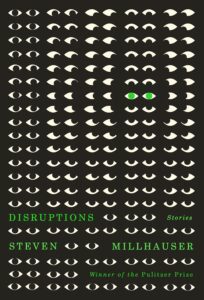
Steven Millhauser, Disruptions: Stories
Knopf, August 1
The master of the short story—though no slouch with novels either—is back with another collection, eighteen stories of the distorted Americana that he does so very well. As a die-hard Millhauser fan, I will be first in line to read them. –ET
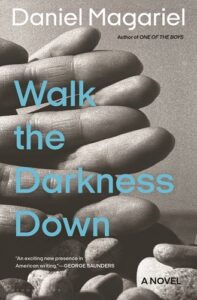
Daniel Magariel, Walk the Darkness Down
Bloomsbury, August 1
Magariel tells the story of a couple in a crumbling coastal town dealing with profound grief after the death of their daughter. As wrenching as it is beautifully wrought, this novel is, at times, difficult to read—but is very much worth the devastation. Also, Annie Proulx described the sentences in this novel as “burning flags,” which may be the fastest way to get me to read anything. –JG

Ben Purkert, The Men Can’t Be Saved
Overlook Press, August 1
As previously recommended: Sometimes I wonder if the men know that us non-men are talking about them. Ben Purkert’s witty novel The Men Can’t Be Saved, about a down-and-out copywriter with one good tagline, suggests yes, they do. Seth, the blustery, intoxicated ad-man wannabe, is fired from his job and suffers a crisis of identity, but never feels completely convinced any of it is really his fault (“Was I really so bad?”), still managing to devalue the women he encounters (of his mother: “What had she ever made except me?”) as he spirals into getting high on prescription drugs and attending Kabbalah. Seth might be a numpty with words, but Ben Purkert sure knows what he’s doing. One of many novels grappling with the alienating forces of the attention economy, it’s also a cathartic workplace read. –JM
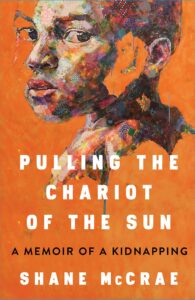
Shane McCrae, Pulling the Chariot of the Sun: A Memoir of a Kidnapping
Scribner, August 1
I’m a longtime admirer of Shane McCrae’s gorgeous poetry, so I’m eager to read his memoir. McCrae was kidnapped from his Black father as a young child and raised by his white supremacist grandparents, who denied his Blackness. I have no doubt that McCrae’s rendering of his childhood and what came after will be dazzling, and this memoir an essential one. –JG
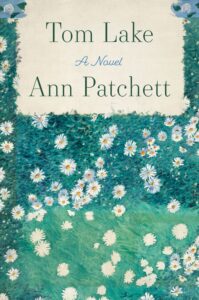
Ann Patchett, Tom Lake
Harper, August 1
As previously recommended: Who is better, more nuanced, or more surprising on matters of love and family than Patchett? In her newest novel, Tom Lake, she begins with the return of three daughters to the family home in Michigan, spring 2020, an auspicious time. The daughters want a story from their mother: the story of her long-ago romance with a now famous actor with whom she was involved in earlier days. Patchett takes us on that heady voyage into the past, with a delicately observed story that is also constantly shifting the ground beneath our feet.
In Patchett’s novels, there’s always a strange mix of registers and reactions, something like dread or foreboding, balanced against a joyful effervescence that pushes us headlong toward whatever is coming next. She also remains a master of the set piece, creating unforgettable moments in time for her tumultuous families. –DM
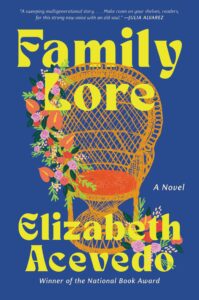
ELIZABETH ACEVEDO, FAMILY LORE
ECCO, AUGUST 1
As previously recommended: Family Lore is the first novel for adults from Elizabeth Acevedo, who won the National Book Award in Young People’s Literature for her 2018 debut, The Poet X. It is the story of one big Dominican-American family, centered on four sisters—one of whom has an uncanny ability to predict when people will die. So when she asks to bring the family together for a living wake, everyone shows, bringing all their secrets and troubles with them. Sounds very juicy. –ET
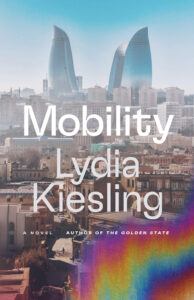
Lydia Kiesling, Mobility
Crooked Media Reads, August 1
As previously recommended: I wouldn’t have imagined a petronovel was the obvious next step for Kiesling, whose debut The Golden State is beloved among those who were looking for early motherhood to get a worthy literary treatment, but the execution of this satire-turned-tragedy about the international strata of NGO/foreign policy/oil and gas technocrats running this planet makes it feel like a natural and necessary next step for a writer exploring the strings between one generation and the next.
Modeled on Upton Sinclair’s Oil!, Mobility follows Bunny, a diplomatic brat, from her adolescence on her dad’s posting in Baku, Azerbaijan, where she first encounters the oil choads and NGO hangers-on of the U.S. foreign policy apparatus, to an aimless but privileged adulthood working as an admin then girlboss with the “renewables” arm of an oil and gas consultancy in Texas—throughout the novel, her hands are on the hyperobject of anthropogenic decline, as were her parents’ before that.
Momentum speeds as the pages turn; characters live lavishly on student loans they will later have to repay; they profit off the price of an oil barrel, but “[are] not accustomed to thinking of themselves as people who had responsibilities to be bad or good.” Bunny’s family breaks apart, she readopts her birth name Elizabeth at the same time as oil companies rebrand and “pivot,” the climate crisis lapping at the door, but late turns in the plot aren’t enough to stave off an ending I promise will take the wind out of your sails. Genuinely a brilliant book, the best piece of motherhood literature I’ve read this year, and a perfectly urgent summer read for a 110-degree day. –JM
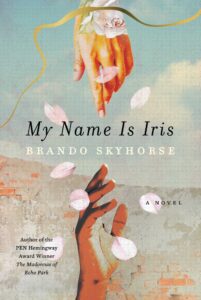
BRANDO SKYHORSE, MY NAME IS IRIS
AVID READER PRESS, AUGUST 1
As previously recommended: From the PEN/Hemingway Award–winning author of The Madonnas of Echo Park, a novel set five minutes in the future, in an America in which all citizens wear high-tech identification wristbands—all citizens who can prove “parental citizenship,” that is, leaving second-generation Americans like Iris out in an increasingly violent and frightening cold. –ET
JAMEL BRINKLEY, WITNESS
FSG, AUGUST 1
As previously recommended: Jamel Brinkley’s debut story collection, A Lucky Man, was something of a sensation upon its release in 2018, receiving a raft of major literary award nominations (including National Book Award, PEN/Robert W. Bingham Prize for Debut Fiction, the Story Prize, and the John Leonard Prize nods), as well as near-unanimous critical acclaim (the Guardian called it “near faultless”), so expectations are high for his follow-up. These ten stories in this new collection (which comes with blurbs from luminaries like Justin Torres, Raven Lelani, and Angela Flournoy, and Yiyun Li), are portraits of intimacy and friendship, grief and mourning, all set “in the changing landscapes of contemporary New York City.” Expect this to be one of the standout collections of the year. –DS
JIMIN HAN, THE APOLOGY
LITTLE, BROWN, AUGUST 1
As previously recommended: Jimin Han’s latest novel, “part ghost story and part family epic,” promises to be tooth-sinkingly great. I mean: “In South Korea, a 105-year-old woman receives a letter. Ten days later, she has been thrust into the afterlife, fighting to head off a curse that will otherwise devastate generations to come.” It sounds like the kind of sprawling and ambitious novel that is wildly satisfying to read when handled well, and given the brilliance of Han’s previous novel, A Small Revolution, I have no doubt it will be. Get excited for this one. –JG
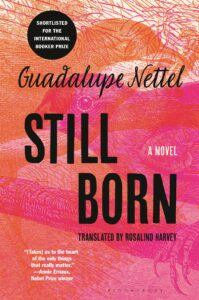
Guadalupe Nettel, tr. Rosalind Harvey, Still Born
Bloomsbury, August 8
As previously recommended: To call Guadalupe Nettel’s Still Born a novel about motherhood—or even, more accurately, maternal ambivalence—feels too simple, but it’s a factual enough place to start. Our narrator, Laura, is so opposed to having children that she tries to convince her friends that “procreating [is] a hopeless mistake.” She feels she has an ally in Alina, another career-driven, arts-focused woman in Mexico City—until Alina announces that she’s pregnant.
A rare medical condition predicts that Alina’s child will not survive, and Laura finds herself in an unexpected position, hoping against hope that her friend becomes a mother after all. Meanwhile, Laura grows close with a young neighbor boy and his mother, who’s contending with her own demons. It’s immediately apparent why Valeria Luiselli calls Nettel “one of the leading lights in contemporary Latin American literature.” I can’t wait to read the rest of her works in translation. –ES
Diane Williams, I Hear You’re Rich
Soho Press, August 8
You can always count on Diane Williams, head literary weirdo and “godmother of flash fiction,” for a good time—if you consider having your mind blown to be a good time, which you should. Her latest book has 33 short pieces guaranteed to shift the world around you, if only for a moment. –ET
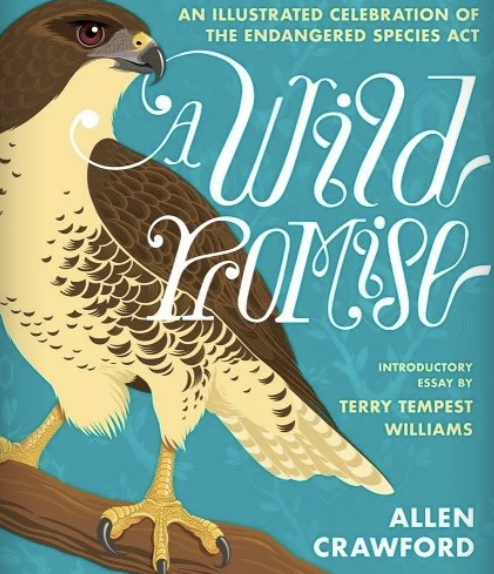
Allen Crawford and Terry Tempest Williams, A Wild Promise: An Illustrated Celebration of The Endangered Species Act
Tin House, August 8
As previously recommended: One of the more frustrating aspects of our slow and inevitable descent into climate catastrophe is that we actually know what we need to do. The solutions are there. Take, for example, the Endangered Species Act of 1973, a groundbreaking piece of bipartisan legislation that finally recognized the immeasurable harm humans were causing to the natural world, and began to take seriously the need to protect the most vulnerable species and their habitat. As Wild Promise reveals—through artist Allen Crawford’s beautiful renderings of over 80 animals, withy text by the great Terry Tempest Williams—we have it in us to save the world, we just have to do it. –JD
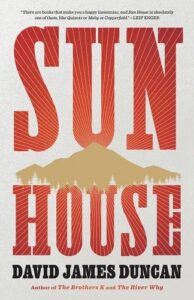
David James Duncan, Sun House
Little, Brown, August 8
There aren’t too many living novelists who can claim to have written not one but two bestselling cult classics—other than David James Duncan, author of The River Why (1983) and The Brothers K (1992). Duncan is beloved for mixing stories of the natural world with a search for spiritual transcendence, and his latest—which centers on a community in Montana that draws “spiritual refugees, urban sophisticates, road-weary musicians, and local cowboys”—sounds like it will continue very much in that same vein. –ET
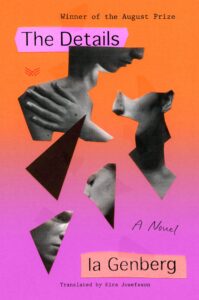
Ia Genberg, tr. Kira Josefsson, The Details
HarperVia, August 8
As previously recommended: It’s difficult to describe the experience of reading Ia Genberg’s English language debut (winner of the August Prize, Sweden’s most prestigious book award) beyond saying that it resembles a fever dream—which is appropriate, given that the narrator herself is in bed with a rising fever, as she recalls four important people from her past: Johanna, an ex-girlfriend, now famous; Niki, a friend who disappeared; Alejandro, a former lover; and Birgitte, her daughter. Genberg’s prose is a feat of characterization, a triumph of lending language and profundity to observations of daily life. At a tight 150 pages, I didn’t read it so much as subconsciously absorb it. –ES
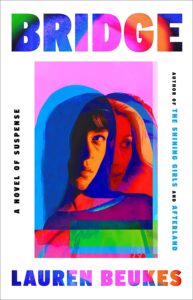
LAUREN BEUKES, BRIDGE
MULHOLLAND, AUGUST 8
As previously recommended: I’m a big fan of Beukes’ horror-tinged, speculative suspense novels—she is apparently an endless well of terrifyingly good ideas. For instance: in this novel, a woman who can’t make up her mind about anything finds an object she thought was imaginary in her dead mother’s freezer: the “dreamworm,” which opens up a path to all other realities—and a million and one dangers. Fun! –ET
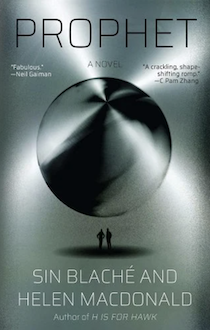
Helen Macdonald and Sin Blaché, Prophet
Grove Atlantic, August 8
As previously recommended: I had heard Prophet (accurately) described as a genre mash-up, blending the best of techno-noir, dystopian sci-fi, and espionage procedural (with a dash of queer romance). And while it is all those things, at its heart Helen Macdonald and Sin Blaché’s tightly wound (yet somehow tender?) mystery-sci-fi-thriller is a philosophical novel. And not because it inserts page-long disquistions into its characters’ mouths on the dangers of nostalgia or the elusiveness of truth but rather because it instigates in its readers uncomfortable explorations of those very territories (well, at least in this reader).
How, you ask?
At the risk of spoilers, the plot follows an unlikely pair of security service lifers as they team up to investigate the sudden appearance of a classic American diner in an English field. As more such odd manifestations occur (along with an unseemly death or two) the duo soon discovers a strange substance behind it all that induces in people a nostalgia so intense that it instantiates in the physical world.
And if that’s not far enough into irreality for you, one of the investigators—Rao, a hard-living adrenaline junkie and periodic MI6 operative—is blessed/cursed with the ability to divine the truth of things, both figuratively and literally. Rao is joined by Adam, who is as repressed and straightlaced as his partner is chaotic, and who uses Rao like a human divining rod to guide them through the ever-thickening mystery of “Prophet,” the aforementioned substance.
In the hands of most writers, Rao’s special talent would come across as just another gimmicky super power, but Macdonald and Blaché treat Rao’s black and white relationship to truth with wary ambivalence, understanding that what might seem to most like a blessing is, in practice, a curse. For what is life without mystery? And at what point does nostalgia grow so strong it derails our lives? –JD
JAMES MCBRIDE, THE HEAVEN & EARTH GROCERY STORE
RIVERHEAD, AUGUST 8
As previously recommended: The arrival of a new novel by National Book Award-winner James McBride (The Good Lord Bird, Deacon King Kong)—a masterful storyteller who always brings a deep well of humanity and humor to his exuberant, expansive tales—is a cause for celebration. The Heaven & Earth Grocery Store (another amazing title) is set in a run-down neighborhood in a small Pennsylvania town in 1972. Peopled by a cast of immigrant Jewish and Black characters, and centered around the mystery of skeleton found at the bottom of a well, this sounds like another knockout ensemble piece from McBride. –DS
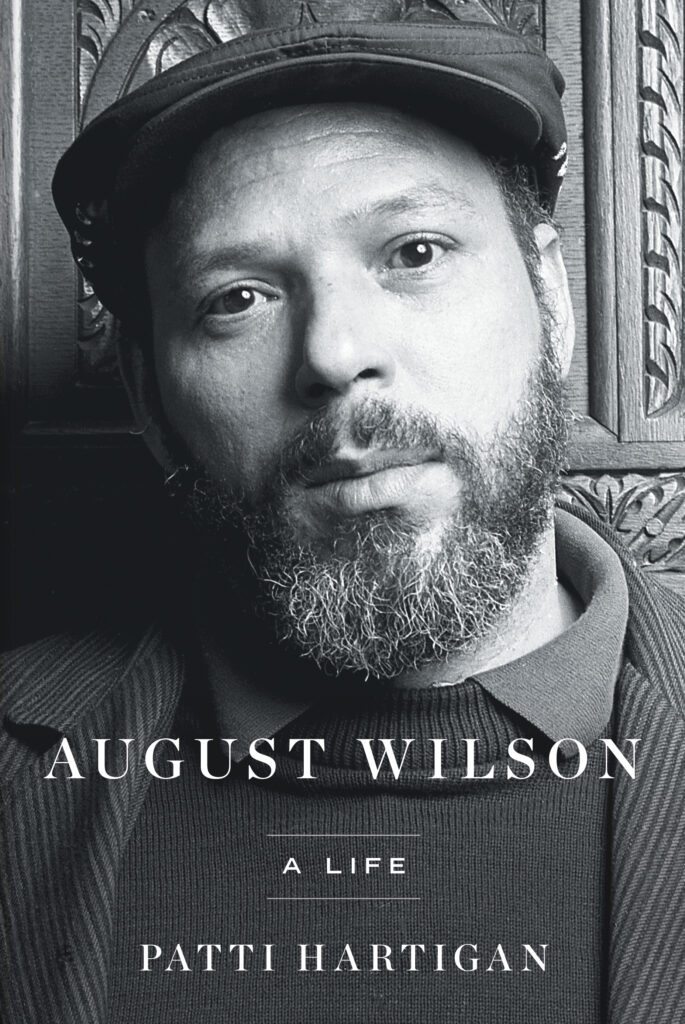
Patti Hartigan, August Wilson: A Life
Simon & Schuster, August 15
As previously recommended: August Wilson died far too young in 2005, at just 60 years of age. It has also been far too long for us to get a definitive biography of one America’s finest playwrights, whose chronicles of Black life in 20th-century Pittsburgh will be read and performed well into the 22nd century. Biographer and theater critic Patti Hartigan interviewed Wilson many times when he was alive, and has supplemented that material by talking to those closest to Wilson about his life, his art, and the immeasurable influence he has had on both Black culture and the broader world of the American stage. –JD
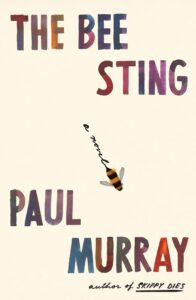
Paul Murray, The Bee Sting
FSG, August 15
As previously recommended: Trust Paul Murray to make 650 pages feel too short. Seriously. Murray—best known for his wonderful 2010 novel Skippy Dies—has returned with a wildly entertaining, completely convincing, and deeply moving family saga, told with such deft management of time and mystery and perspective that I defy anyone not to get completely swept away by it. There’s no way to properly describe it so that you understand, except that in it Murray unspools the lives of four relatively ordinary people with such brilliant specificity and extravagant empathy, in cool-water prose mixed with his trademark wry darkness, that it’s difficult to let them go at the end.
Speaking of the end: my sincere apologies for the following, but……. fuck!!!!!!! That’s all I have to say about that until you’ve read it yourself, after which my DMs are open to discuss. Again: fuck! Best ending of the year? –ET
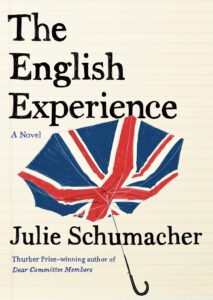
JULIE SCHUMACHER, THE ENGLISH EXPERIENCE
DOUBLEDAY, AUGUST 15
As previously recommended: Alert, alert: Julie Schumacher is back with the third and final book in the hysterical campus novel trilogy (Dear Committee Members, The Shakespeare Requirement) starring beleaguered academic Jason Fitger, who to the dismay of all must chaperone Payne University’s annual “Experience: Abroad” to—you guessed it—the UK. I’m actually trying to wait read this because I want to be able to savor it completely, but I don’t think I’m going to be able to wait very long. –ET
Jenn Shapland, Thin Skin: Essays
Pantheon, August 15
Alexander Chee calls this essay collection from the author of My Autobiography of Carson McCullers, who was literally diagnosed with think skin—or “extreme dermatologic sensitivity”—”a wrenching, loving and trenchant examination of feminism, nuclear weapons production, healthcare, queerness and American life unlike any I can think of, in essays that give lessons in pushing this form to the limit,” and writes that “the resulting collection is iconoclastic, electric, illuminating, and the honesty and art in these essays bring with them a series of welcome awakenings.” Sold. –ET
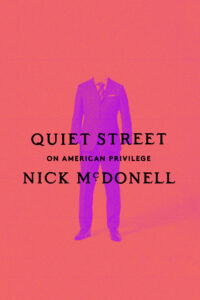
Nick McDonell, Quiet Street: On American Privilege
Knopf, August 22
Social media has made the acknowledgment of one’s privilege a kind of parlor game, wherein one confesses to certain (obvious) advantages while also making sure to inject an element of struggle: “Yes, my father owned an emerald mine in South Africa but I work really hard.” Rarely, though, does someone write an entire book directly addressing their privilege and, importantly, that of their peers.
With Quiet Street, Nick McDonell (whose father is a co-founder of this website) grapples with his very one percent Upper East Side origins, a childhood spent shuttling between private schools and private jets, enjoying a life well out of reach for almost all of us. Though McDonell eventually rejected the ease his upbringing afforded him, becoming a war correspondent in Iraq and Afghanistan, he was still able to make that choice. In that sense it is hard—nearly impossible—to get fully beyond one’s own frame of socioeconomic reference, but it’s important that people like McDonell try in ways more meaningful than a Tweet. –JD
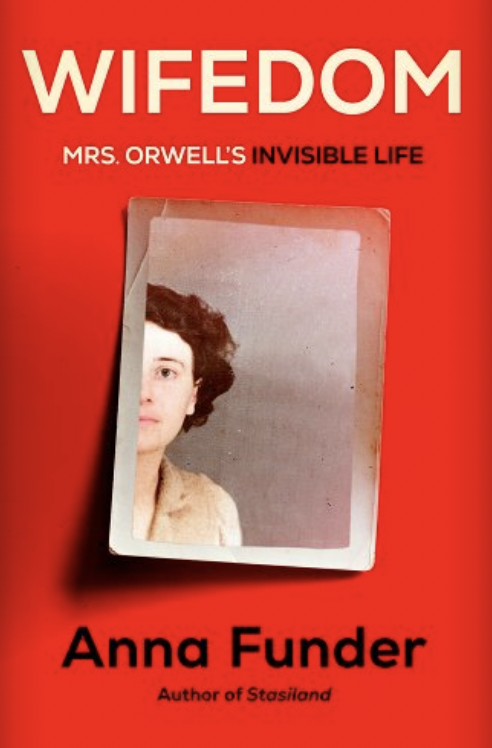
Anna Funder, Wifedom: Mrs. Orwell’s Invisible Life
Knopf, August 22
As previously recommended: Ah, the life of the literary spouse, typing up manuscripts, making tea, doing laundry, scrubbing solecisms… Such was the lot of the likes of Vera Nabokov, Sophia Tolstaya, Valerie Eliot (and, sure, let’s add Leonard Woolf in there for a little variety). But until now no one has had much to say about Eileen O’Shaughnessy, a writer who married another writer, George Orwell, in 1936. As Anna Funder reveals in her genre-bending biography of the hitherto forgotten O’Shaughnessy, the Orwells’ was a marriage of literary equals, as George relied on Eileen for much, much more than afternoon tea. –JD
Nicole Sealey, The Ferguson Report: An Erasure
Knopf, August 22
In which Sealey, one of Lit Hub’s favorite poets, revisits the investigation into the 2014 killing of Michael Brown by a police officer in Ferguson, Missouri—and the ensuing report that showed the depth of the city’s racist policies and practices—via the illuminating process of erasure. –ET
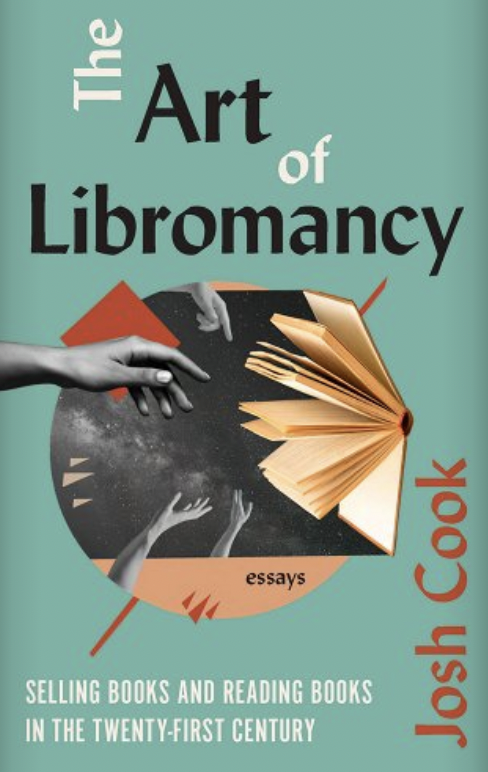
Josh Cook, The Art of Libromancy: On Selling Books and Reading Books in the Twenty-first Century
Biblioasis, August 22
As previously recommended: In a society awash in political misinformation, corporate consolidation, government book banning, and endless algorithmic distraction, can we all agree that independent bookstores are more important than ever? Yes, sure, but what’s it like to sell books amidst the aforementioned crazy times? With The Art of Libromancy, bookseller Josh Cook at once soberly enumerates the ever-present risks faced by small bookstores while also maintaining a healthy optimism about the joys and possibilities of the profession. It is a hopeful act to open a bookstore, Cook seems to suggest, and it is only that kind of hope that we’ll see us through this mess. –JD
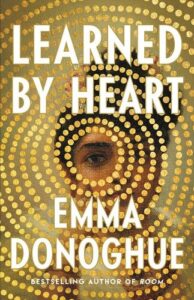
Emma Donoghue, Learned by Heart
Little, Brown, August 29
Donoghue’s latest novel is based on the true story of Eliza Raine and Anne Lister, two fourteen-year-olds—one an orphaned heiress, the other an inveterate tomboy—who fell in love at the Manor School for Young Ladies in 1805. Sure to be equally fascinating—and by all accounts, completely heartbreaking—for those who know their story already, and those who don’t. –ET
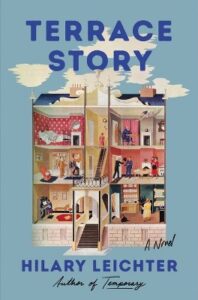
Hilary Leichter, Terrace Story
Ecco, August 29
As previously recommended: Terrace Story is an expansion on Hilary Leichter’s National Magazine Award-winning short story of the same name, which was published in Harper’s in 2020; I remember loving it then, but re-encountering it now, after having a baby, I found it even more devastating. But that story is only the beginning of this novel, in which Leichter follows her idea—of a door that seems to lead to a magical terrace in Annie and Edward’s otherwise cramped apartment, but only when Annie’s coworker Stephanie is over—to its logical conclusion, and then far beyond. What more could happen? I thought at the end of the first chapter, but it turns out: whole worlds and lifetimes unfurled in just 200 pages. This is an intelligent and sneakily moving book, perfect for afternoons when you wish you were nowhere other than where you are. –ET
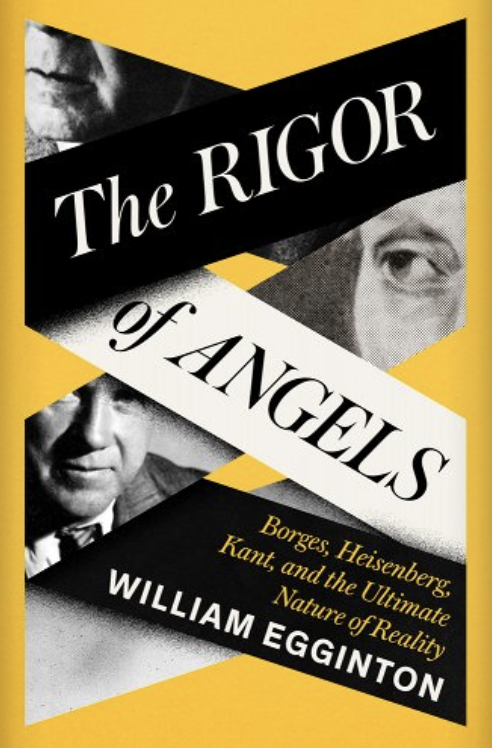
William Egginton, The Rigor of Angels: Borges, Heisenberg, Kant, and the Ultimate Nature of Reality
Pantheon, August 29
As previously recommended: If forced to read just one of the titular thinkers in William Egginton’s lively intellectual history, the obvious answer would be Borges, whose prismatic erudition never drifted too far into the opacity (or prolixity, if we’re being honest) of Kant. And to his credit, Heisenberg, whose mathematical divinations—at least for some—straddled the line between physics and philosophy, wrote a perfectly accessible memoir, and had a way with a good soundbite. But what do these three have in common? For Egginton, each in their way—the poet, the physicist, and the philosopher—grappled with the fundamental disconnect between our interior selves and the reality of the broader world, and did so in sublimely beautiful fashion. As The Rigor of Angels shows, there is still much to be learned from these intellectual giants. –JD
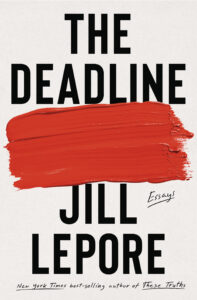
Jill Lepore, The Deadline: Essays
Liveright, August 29
The latest book from Jill Lepore, Harvard professor and staff writer at The New Yorker is a collection of essays that offers “a prismatic portrait of Americans’ techno-utopianism, frantic fractiousness, and unprecedented―but armed―aimlessness.” Lepore is a great, generous writer as well as an omnivorous historian, and there’s sure to be plenty to dig into here. –ET
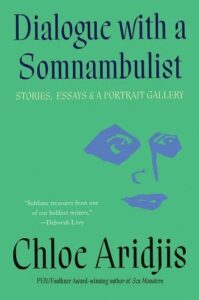
Chloe Aridjis, Dialogue with a Somnambulist
Catapult, August 29
The latest book from the author of Sea Monsters, which won the 2020 PEN/Faulkner award for Fiction, is subtitled “Stories, Essays, & a Portrait Gallery,” which is interesting enough (Aridjis has included pen portraits of people like Leonora Carrington and Mavis Gallant) and comes with an introduction by my favorite bonkers writer Tom McCarthy. If that’s not enough (it is), Claire-Louise Bennett describes the varied short pieces within as “Exquisite dreamworks that exert alternative logics and make a compelling case for the idea that we are born into fantasy and only gradually acquire a sense of a much narrower and more rational reality.” Bring me back to the fantasy! –ET
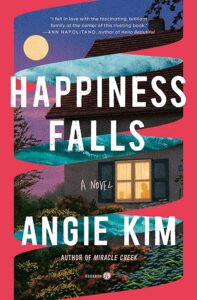
Angie Kim, Happiness Falls
Hogarth Press, August 29
Angie Kim once again combines an intense character study with a searching mystery, this time after her narrator’s husband disappears, and police are interested in quickly pinning it on her nonverbal son. Kim uses the parallel investigations of police and family to explore the complex dynamics of interracial marriage, Asian and biracial identity in America, and the nuances of raising a child with special needs. You’ll want to savor every word as Kim plunges the depths of human action and finds love at the center. –MO
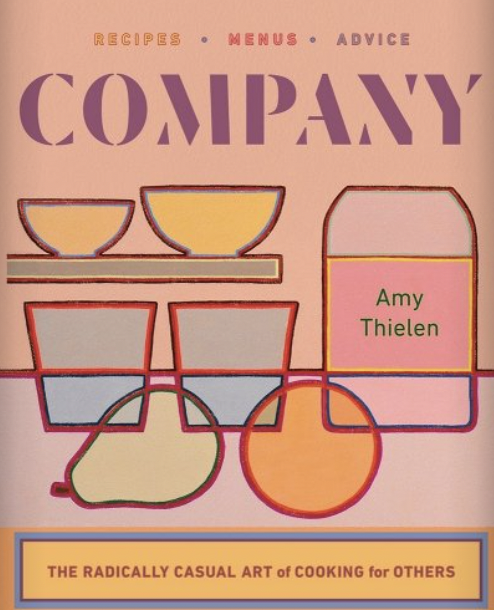
Amy Thielen, Company: The Radically Casual Art of Cooking for Others
W.W. Norton, August 29
As previously recommended: Does anyone anywhere ever want to have a Zoom cocktail party ever again? As the Covid pandemic recedes, and people begin to gather again in each other’s homes, some of us might need a refresher course in the fine art of the dinner party. Who better than Amy Thielen, the James Beard award-winning author of The New Midwestern Table (a modern classic of farm-to-table comfort food) to remind us that a good dinner party is less about the food than it is about the spirit of family—chosen or otherwise—that we all need in our lives. –JD


